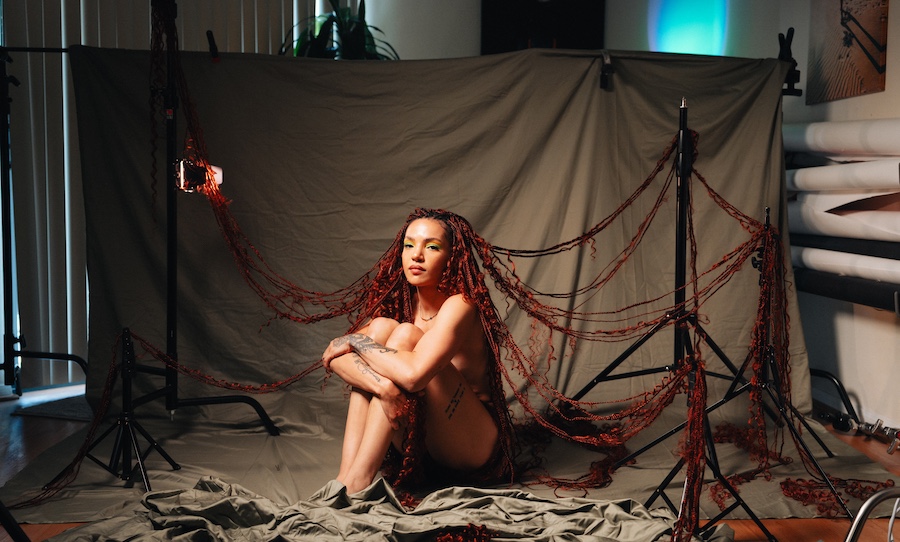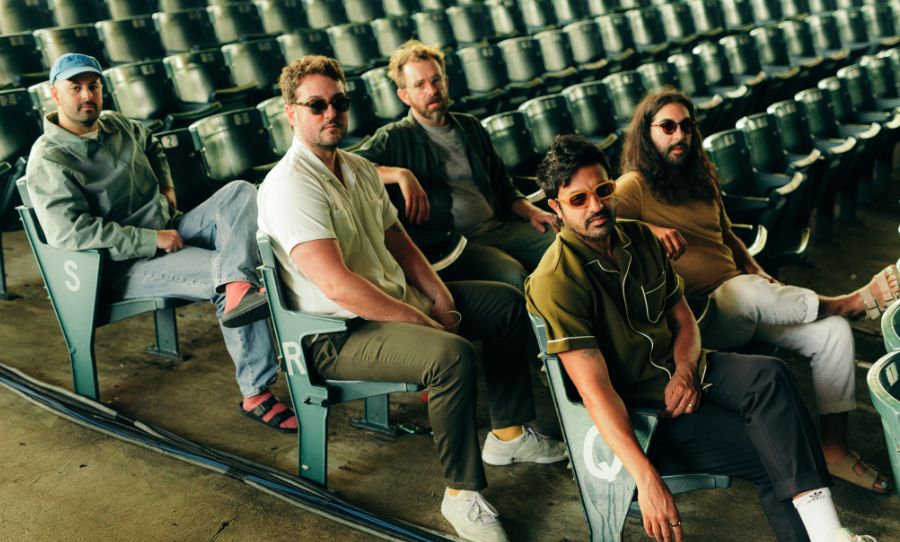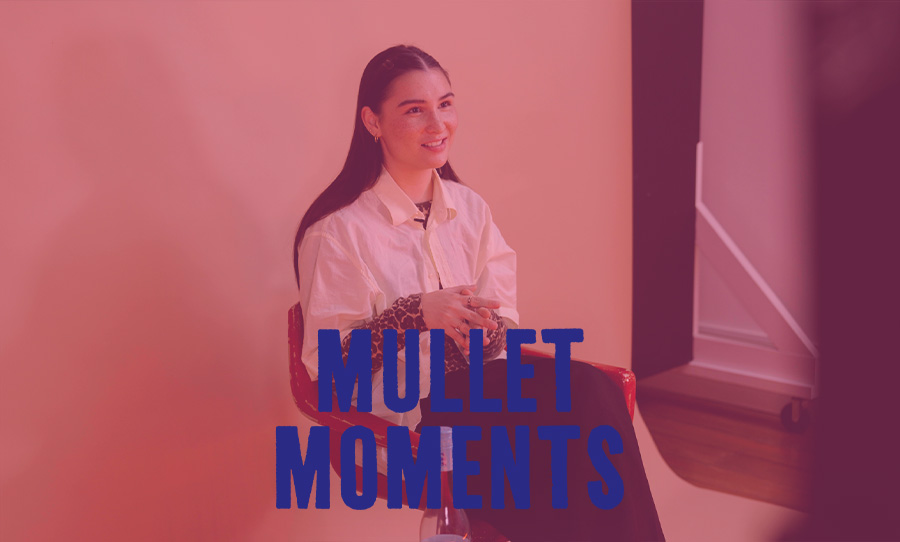Australian-born artist Takara has come a long way from recording GarageBand covers in her bedroom.
Now a viral sensation with over 500,000 followers and 300 million views, the self-made musician blends Afrobeat, Amapiano, and R&B into a sound that’s as infectious as it is introspective.
Her latest single, “Pillow Talk,” is a vibrant, cheeky anthem about the push-and-pull of a situationship—marking her boldest release yet.

After relocating from Chicago to LA with just $75, Takara’s hustle paid off, earning her a #1 spot on Triple J Unearthed and performances at major festivals like SXSW.
In an exclusive interview, she opens up about the six-month process behind “Pillow Talk,” her journey reconnecting with her African roots through music, and the hidden R-rated Easter eggs in her lyrics.
From late-night studio sessions to healing through rhythm, Takara proves that growth—and great music—comes from embracing every messy, playful, and soulful moment along the way.
View this post on Instagram
HAPPY: What have you been up to today?
TAKARA: I’ve spent today recovering from my show last night at The Peppermint CLub in Hollywood.
I was part of a showcase with the incredible Shae Universe, and let’s just say – we had a little too much fun in the green room.
HAPPY: What inspired you to write “Pillow Talk”?
TAKARA: I went into the studi with the producer Nick, and we started off just chatting, getting to know each other a bit. Normally, when i go into a writing session, I like to have a rough idea to work from.
So I told him about how I’d just gotten out of a situationship – but the guy was still watching my stories, liking my posts, and I was struggling with the urge to text him back.
I had been trying to write a song to help encourage myself to heal and finally let go. The conversation ended up shaping the heart of the track we created that day that eventually became “Pillow Talk” over the course of 6 months.
HAPPY: Where/whom do you draw your Afrobeat and Amapiano influences from?
TAKARA: I grew up traveling the world, constantly moving between cultures and sounds. I was exposed to so many different styles of music as a kid – everything from classical soul and jazz, to reggae and gospel, to 90’s and early 2000’s R&B and J/K-pop.
That blend became the foundation of how I hear and create music today.
But growing up in white suburbia, I often felt so disconnected from my African roots. There wasn’t much space to explore my identity beyond what I saw around me, so for a long time, I didn’t fully understand where I came from.
It wasn’t until I started discovering old-school Afrobeat legends like Fela Kuti, and immersing myself in Afrosoul and South African Amapiano, that something shifted. Of course now I see girlies like Arya, Tyla, and Tems absolutely killing the game and they’ve given me the confidence to myself out there in terms of my sound.
Hearing those sounds sparked something. It was like I was being reintroduced to a part of myself I didn’t even know was missing.
That journey is really what shapes the music I make now: it’s global, soulful, grounded in rhythm, and I’m able to reconnect to the diaspora.
HAPPY: Why did you choose “Pillow Talk” as the title?
TAKARA: The title ‘Pillow Talk’ plays on the double meaning – it sounds innocent, like late-night conversations between lovers, but it’s really a cheeky innuendo for what actually happens in bed.
It captures that blurred line between emotional intimacy and physical connection.
HAPPY: How does this song compare to your previous work in terms of sound and theme?
TAKARA: ‘Pillow Talk’ is a bit of a bold shift from the more relaxed, introspective tones of my previous songs like “Into The Water” and “Coffee”.
Those tracks feel meditative and soul soothing and are perfect for more quieter moments of reflection, but ‘Pillow Talk’ brought a more vibrant and playful energy out of me and I’m hoping it does so to everyone who listens as well
HAPPY: What was the creative process like for “Pillow Talk”? Did you produce it yourself?
TAKARA: I made it with producer Nick Fera who also co wrote it with me as well.
We started working on it around the end of 2024 but we are both such perfectionists that it actually took about 6 months to finish!
HAPPY: The song feels infectious and danceable—was making it a “vibe” a priority?
TAKARA: I mean making it a vibe is ALWAYS the priority, but I definitely wanted to do something more upbeat! I needed to give the girlies something to dance to while we stand on business this summer.
HAPPY: What was the biggest challenge in making “Pillow Talk”?
TAKARA: One of the biggest challenges in creating ‘Pillow Talk’ was the distance between me and the producer. We were literally working across continents and time zones.
We had to send files back and forth, sometimes waiting hours just to hear a new idea or a tweak. It really tested our patience and communication, but it also made the process feel intentional.
Every element had to be carefully thought through, and in the end, that extra effort made the final track feel even more rewarding.
HAPPY: What do you hope listeners will take away from listening to “Pillow Talk”?
TAKARA: With ‘Pillow Talk’ I hope listeners feel a sense of freedom to be bold, playful, and honest about where they are emotionally.
The song might sound cheeky on the surface, but at it’s core it’s about healing and acknowledging moments when we slip up and fall back into old patterns, and learning to move forward with self-compassion.
For my longtime listeners, I hope this track shows my growth not just as an artist but as a woman finding her voice and pushing herself creatively.
At the same time, I want new listeners to feel the same connection people have found in my earlier music. Whether it was “Strawberry Cake” or “Sin” – my goal has always been to make my listeners feel seen and I hope ‘Pillow Talk’ offers that same emotional release, just through a different lens.
I hope it helps people heal the way it helps me: with honesty, rhythm, and a little bit of fun.
HAPPY: Are there any hidden meanings or Easter eggs in the lyrics?
TAKARA: Oh 100% there are hidden meanings in the lyrics. They’re a little R-rated so I’m not sure how specific I can be here, but there’s a line about how when we come together it’s complicated.
And then of course at the end of the post-chorus, there’s a line about how they have me getting on my knees… is it to pray? We might never know!
HAPPY: What’s next after “Pillow Talk”—any surprises or collaborations coming soon?
TAKARA: Right now, I’m deep in the process of recording my third independent album, and it feels like a real turning point for me.
My past projects were rooted in heartache, processing pain, and the emotional weight that comes with it.
But this new body of work isn’t about heartache so much as the person who you become after it. I can’t wait to share it with the world.
HAPPY: Lastly, what makes you happy?
TAKARA: What makes me happy? Honestly, it’s the little things… like the weirdly comforting smell of my cat’s forehead (don’t judge me, it’s pure serotonin) or hearing a song that hits just right on a late-night walk.
But it’s also big things like seeing the people I love win, chase their dreams, and come into their own.
More than anything I’m genuinely just happy being able to experience this journey that I’m on. Creating, growing, failing, learning – it’s all a part of it and I don’t take anything for granted. Especially with everything going on in the world right now, I recognize what a privilege it is to be here, to be doing what I love, and to have the space to keep evolving. That alone is a kind of happiness I carry with me every day.



